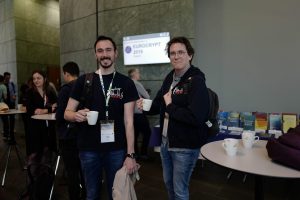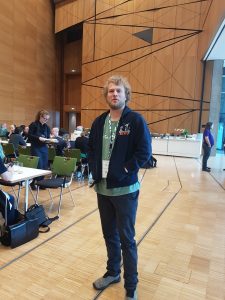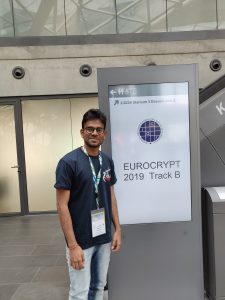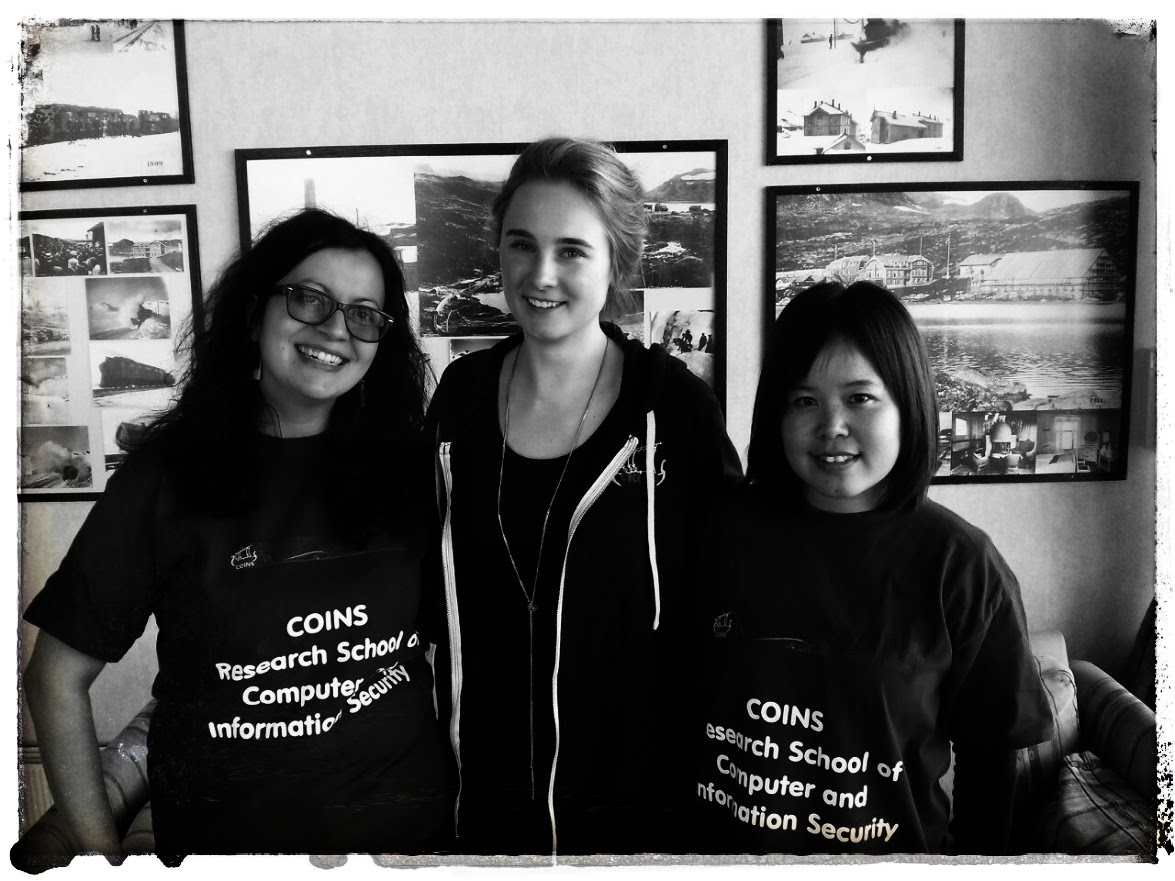 EUROCRYPT 2019 was the 38th Annual International Conference on the Theory and Applications of Cryptographic Techniques. Eurocrypt is one of the three flagship conferences of the International Association for Cryptologic Research (IACR).
EUROCRYPT 2019 was the 38th Annual International Conference on the Theory and Applications of Cryptographic Techniques. Eurocrypt is one of the three flagship conferences of the International Association for Cryptologic Research (IACR).
Eurocrypt 2019 took place in Darmstadt, Germany on May 19-23 2019. It was organized by the Cryptoplexity group of TU Darmstadt.
COINS supported Åvald Sommervoll, Mayank Raikwar, Bor de Kock, Mattia Veroni and Navid Ghaedi Bardeh to attend the EUROCRYPT 2019 in Darmstadt, Germany.
 Åvald Sommervoll has also attended two affiliated events.
Åvald Sommervoll has also attended two affiliated events.
- Code-based cryptography is the area of research that focuses on the study of cryptosystems based on error-correcting codes, following the seminal work of McEliece and Niederreiter in the late 1970s – early 1980s. These systems have shown no vulnerabilities to quantum attackers and the relevant research branch is widely regarded as one of the most promising in the so-called area of Post-Quantum Cryptography. Current efforts in code-based cryptography are directed at producing fast, secure and efficient schemes. Research
 in this area has also been fostered by the recent NIST’s Post-Quantum Standardization call. The goal of this two-day workshop was to bring together the community to discuss recent developments, as well as introduce the field to anyone interested in discovering more about this research area. The program includes invited talks, contributed talks and dedicated discussion sessions.
in this area has also been fostered by the recent NIST’s Post-Quantum Standardization call. The goal of this two-day workshop was to bring together the community to discuss recent developments, as well as introduce the field to anyone interested in discovering more about this research area. The program includes invited talks, contributed talks and dedicated discussion sessions. - The topic of quantum algorithms is an area attracting increasing interest and is of particular importance for post-quantum cryptography. In order to build or cryptanalyse proposed quantum-safe schemes, an awareness of applicable quantum algorithms is essential. This is especially relevant given the ongoing NIST post-quantum standardisation process. This workshop gave an overview of the use of quantum algorithms in cryptanalysis. The program was comprised of invited talks from expert speakers who have worked in the development of quantum algorithms and their application in cryptanalysis. The target audience was cryptographers who would like to learn details of how the various quantum algorithms work as well as how they can be applied in cryptanalysis.

